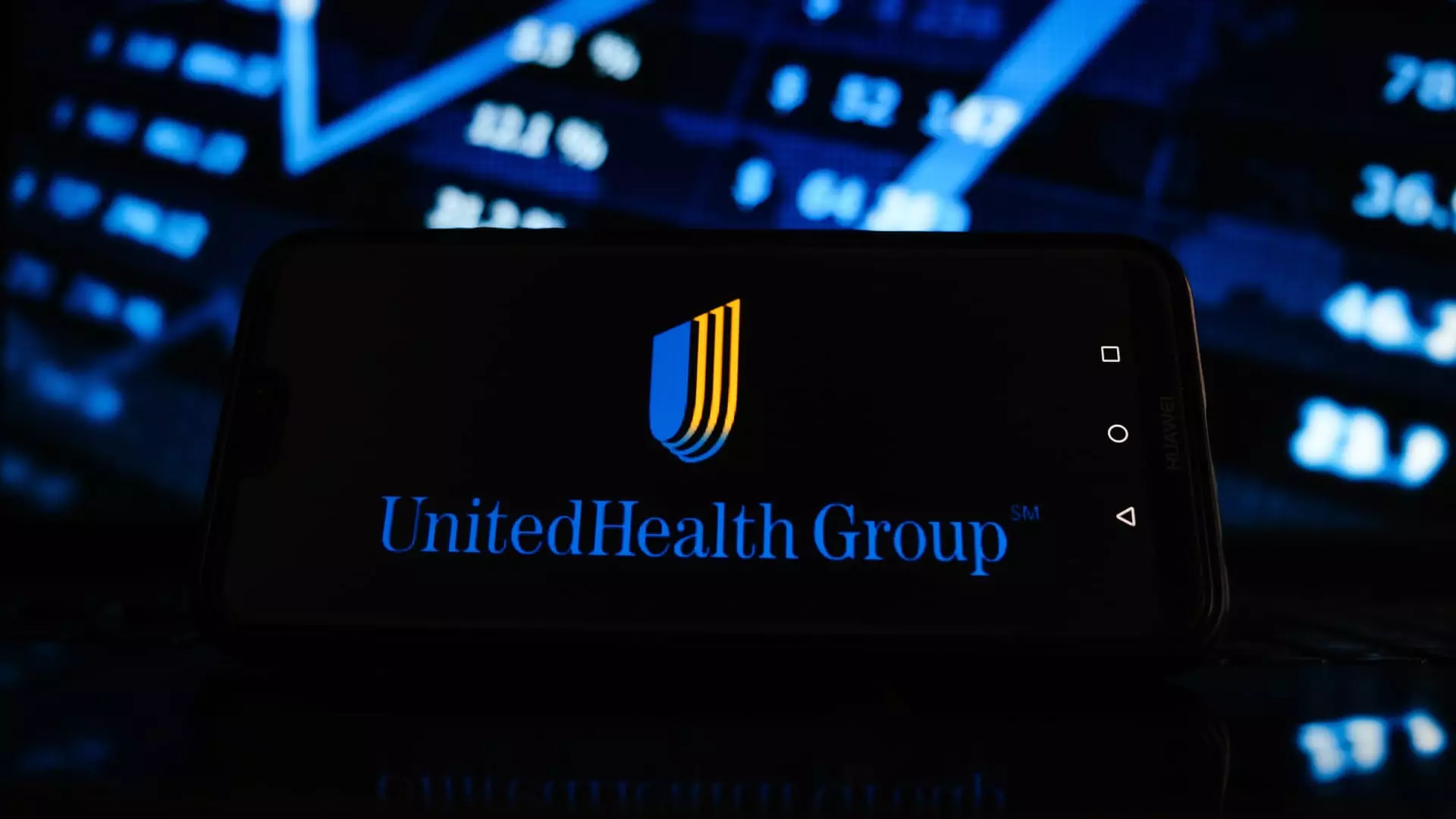In the unpredictable theatre of the stock market, some narratives become eerily telling, and the case of UnitedHealth reflects a dramatic plot twist that should grab investors’ attention. Over the past week, as the stock market generally celebrated a robust performance—with the S&P 500 climbing by a staggering 5.3%—UnitedHealth has stood as a stark outlier. This normally formidable health insurance titan witnessed an alarming 23% dip in its shares, hitting a low unseen in five years. The question begs to be asked: Is this a moment of opportunity or a trembling harbinger of a deeper crisis?
When a company’s stock drops below an RSI of 30, it signals a potential oversold condition; however, this isn’t a surefire guarantee of a rebound. Currently, UnitedHealth’s RSI defies belief at a dismal 14.9, marking its most extreme oversold state since the tumultuous days following the 2008 financial meltdown. Such data might suggest that investors are poised to recognize a bargain; yet, the reality woven through these figures is far less simplistic.
The Shadows of Regulatory Scrutiny
The timing of UnitedHealth’s plight coincides with troubling news: reports have emerged of a federal investigation into allegations of Medicare fraud. The involvement of the Department of Justice sends ripples of concern through the market, raising a critical question about regulatory governance’s role in the healthcare industry. Investors often underestimate the impact of such news, yet it dramatically alters the risk/reward equation associated with a stock. While analysts cling to a buy rating for now, buoyed by a supposed upside potential exceeding 64%, skepticism is warranted.
It’s hard not to view this scenario through a political lens. The healthcare sector has deeply intertwined itself with the fabric of American society, and as such, any missteps can lead to significant repercussions. In a time when the calls for greater accountability from corporations echo louder than ever, institutions like UnitedHealth face immense scrutiny that could hinder long-term recovery prospects. An entity this large should not just be concerned with profits but also with its social license to operate.
Fact and Sentiment: A Balancing Act
The juxtaposition of UnitedHealth’s current position against its robust historical performance creates a profound internal struggle for investors. While bullish analysts predict resurgence, investors must question whether this outlook holds water. The company’s latest profit forecast cuts—triggered by ballooning medical expenses—speak to an unstable foundation that can no longer support optimistic projections.
The paradox lies in the sentiment flitting around economic news; one day, tariff cuts propel a stock rally, and the next, whispers of federal investigations dampen the enthusiasm. Such volatility emphasizes the necessity of critical thinking in investment decisions. A high-powered index may ripple with positivity, but individual stock experiences tell a different story. It’s vital for investors to cultivate an understanding of both macroeconomic conditions and the inherent risks in their portfolio, especially when faced with the enormity of corporate scandals.
Recovery or Continued Decline: The Possible Outcomes
After hitting the proverbial floor, a minor bounce back of approximately 6.4% materialized on Friday, driven by insider buying—an encouraging sign but not necessarily a road to full recovery. Insider purchases may instill some confidence, but increased purchasing by management amidst distress signals could embody desperation rather than an enlightened bullish outlook.
Focusing on the broader implications, perhaps it’s essential for investors to step back and assess the healthcare industry holistically. Numerous firms could be undermined by similar issues, revealing the fragility of the system. Observing how UnitedHealth navigates this backdrop may serve as an essential bellwether for the sector’s overall health—both literally and figuratively.
In this precarious environment, it becomes imperative for wise investors to tune into the alerts that signal caution. As society battles over healthcare access amid rising costs and tenuous policies, present risks could morph into transformational shifts in market sentiment. In all honesty, many investors are likely overlooking the more significant implications of the current narrative and should brace for turbulence ahead.

